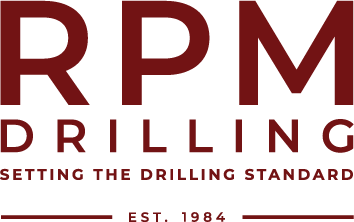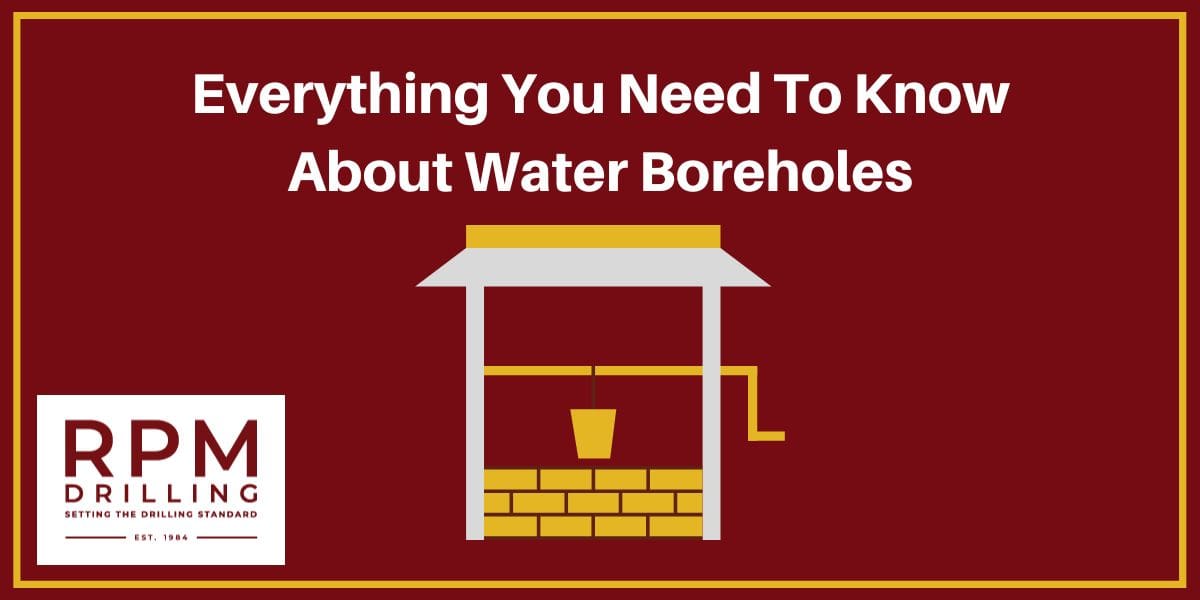Everything You Need To Know About Water Boreholes
Everything You Need To Know About Water Boreholes
If you are thinking about getting a water borehole but feeling a little uncertain or ill-equipped when it comes to making the right decision, this article is the perfect read for you!
A water borehole might sound intimidating, especially when overcome by the unfamiliarity of what it entails, but we’ve got you covered – from what it takes to procure a borehole and where the water actually comes from, to how to maintain it and what kind of water peculiarities to look out for, this article will have you up to speed in no time!
Whether it’s on your residential, commercial, industrial or farming property, water boreholes are super beneficial to have; not only to save money but also for your health and our municipal supply.
Water boreholes are great because they are an investment, they are easy to maintain, and they also offer a consistent water supply to almost any kind of property.
Here’s everything you need to know about water boreholes.
How to drill a borehole:
When it comes to the water borehole drilling process, we understand that it might sound like a daunting task, but there are only four important steps that need to be taken.
Of course, this process is a little bit more complicated than it sounds, but RPM Drilling does have 35+ years of experience so it’s safe to say that we have this process waxed.
The first step is to have a hydro-geologist site the borehole.
This is arguably the most important step of them all because these are the people who help to ensure that we’re not drilling into natural hazards or man-made infrastructures (such as pipelines or cables).
We employ qualified hydro-geologists for this very reason to determine where the water is and how we’re going to get to it.
Only once this is confirmed, the next step can be taken.
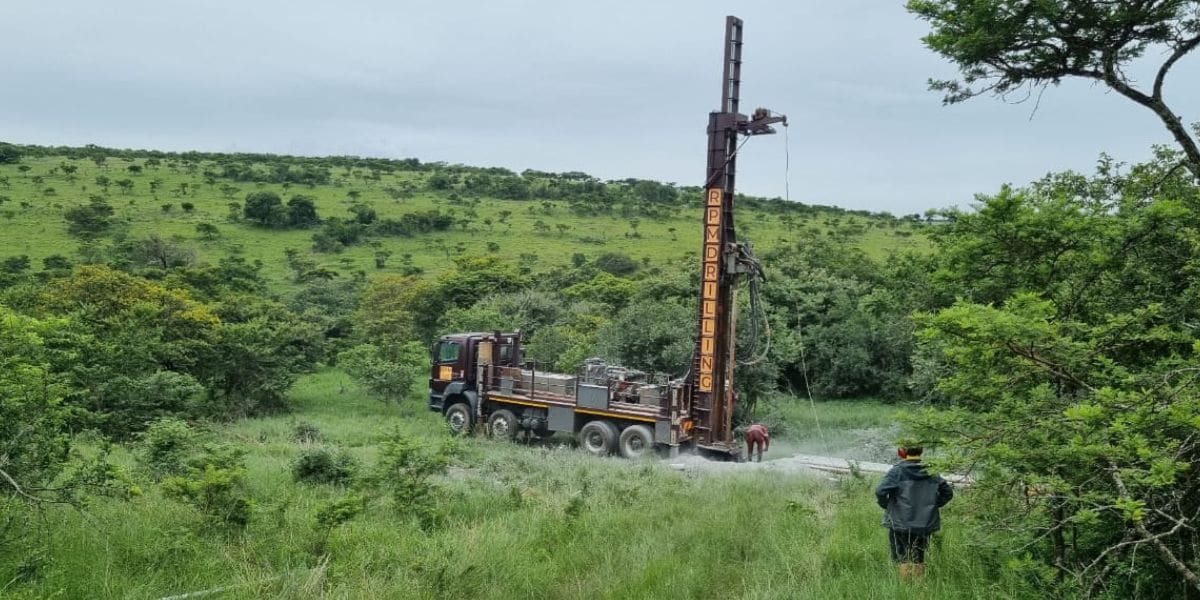
Step two is to follow through and construct the borehole.
We do this by drilling the borehole first and then we steel case the necessary unstable lengths to reinforce the ‘tube’.
After this, for step three, our goal is to then to determine the yield of the borehole.
To complete step three, an aquifer test needs to be performed.
This is the most accurate way in which to gauge the yield of a domestic water borehole.
And finally, step four is the pumping and piping of the borehole; however, the kind of pumping system and piping installed will largely depend on the intended use of the borehole water.
Read More: The Water Borehole Drilling Process.
Where does borehole water come from?
Did you know that while the Earth consists of 60% water, we can only use around 1% of that supply? When put into perspective, Water Resources are scarce, which is why it remains essential to use and manage this resource wisely, no matter the water restrictions in place (or lack thereof).
Water boreholes are a great place to start because they provide access to Groundwater (which is, of course, where the borehole water comes from).
This supply makes up about 30% of the fresh water on our planet, which is the second-largest component of all, and it is found under the surface between rock and soil formations known as aquifers.
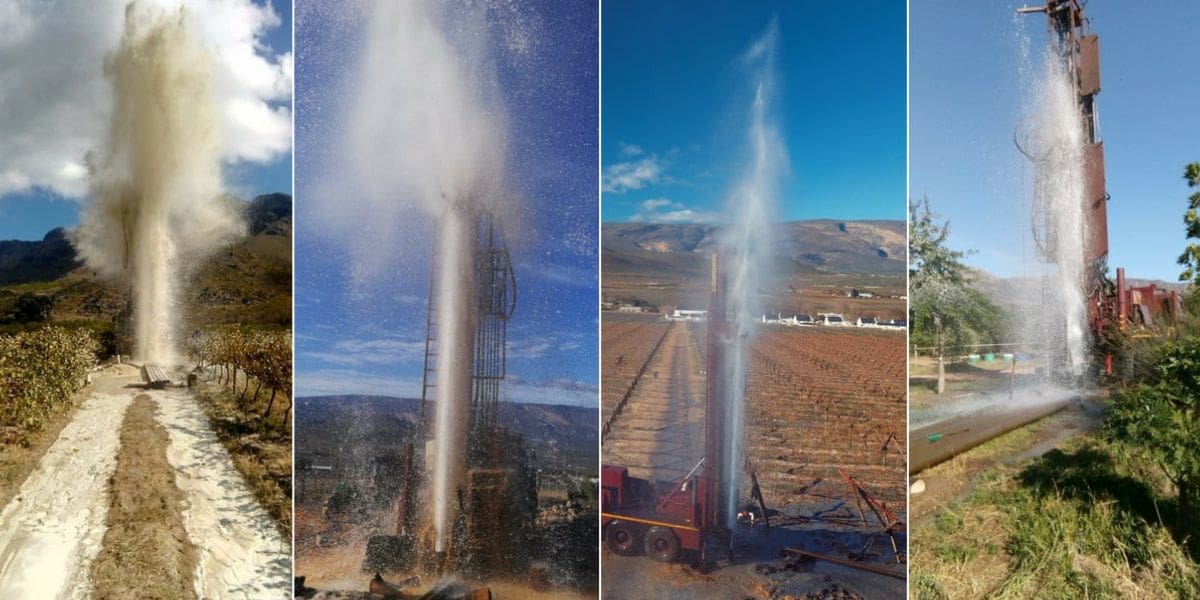
Groundwater essentially comes from rain, snow, sleet and hail that drains into the ground, and yes, it is safe to drink.
This water is rich in naturally occurring minerals and has also not been treated or altered with any man-made chemical additives (like our municipal supply has).
Borehole water has been filtered for you by mother earth herself!
Read More: Managing Our Water Resources.
How much does water boreholes cost?
In an ideal world, we would be able to give you a straightforward answer here, but borehole drilling companies can use a range of borehole drilling methods which will inevitably affect the overall cost of the borehole.
That and the fact that the cost of a water borehole is largely dependent on steps one and two of the water borehole drilling process – where the water is, how we’re going to get to it, the depth of the borehole, and the amount of casing to be used. The type of rock that needs to be drilled through also influences the price, and so do the actual ground conditions.
The biggest challenge when it comes to the borehole drilling process is keeping the borehole open, and this is made more difficult when the hole collapses in on itself due to unstable and loose ground. Contact us to get a free quote! With our special equipment, any formation can be drilled with ease.
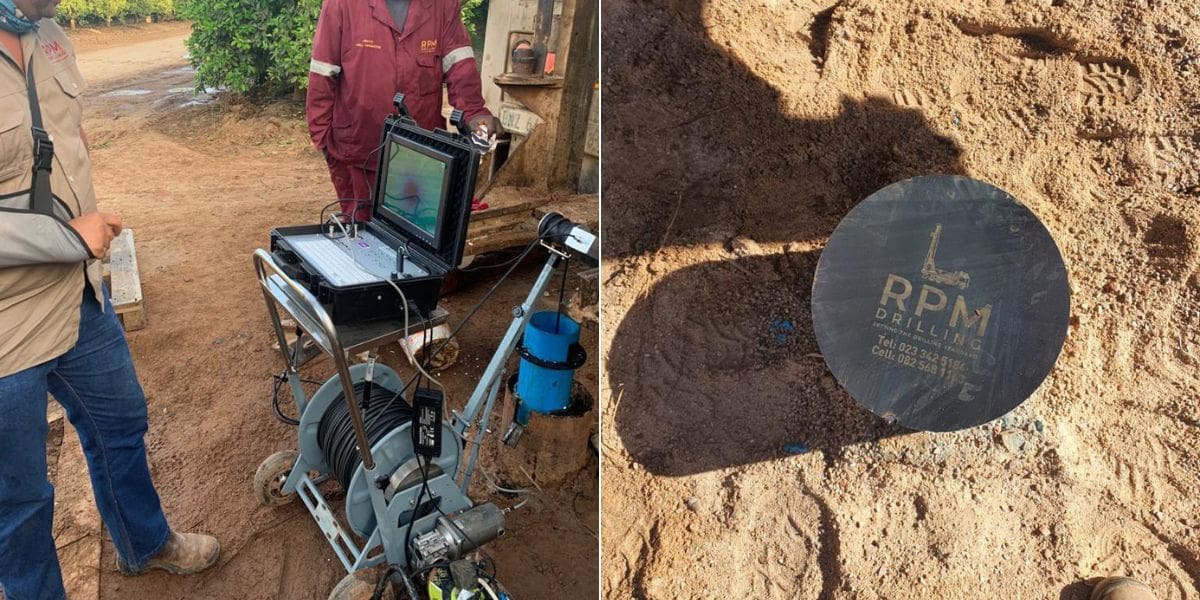
See our services: Water Borehole Drilling & Monitoring.
What is borehole water used for?
Whether it’s on your residential, commercial, industrial or farming property, borehole water can be incredibly beneficial in use, not only to save you money on water bills but also to provide you with a consistent and uninterrupted supply.
Borehole water can be a game-changer for those who have high water requirements like industries – these include some of the most intensive users of water such as golf courses and private or commercial farms.
In addition to this, borehole water can also be used for gardening as it’s treatment free and can be used in large amounts without the cost, as well as for use in the home. Did you know that borehole water is typically gentler on the skin? This is just one reason why it is great for home use, but it’s also higher in mineral content, so perfect for drinking too.
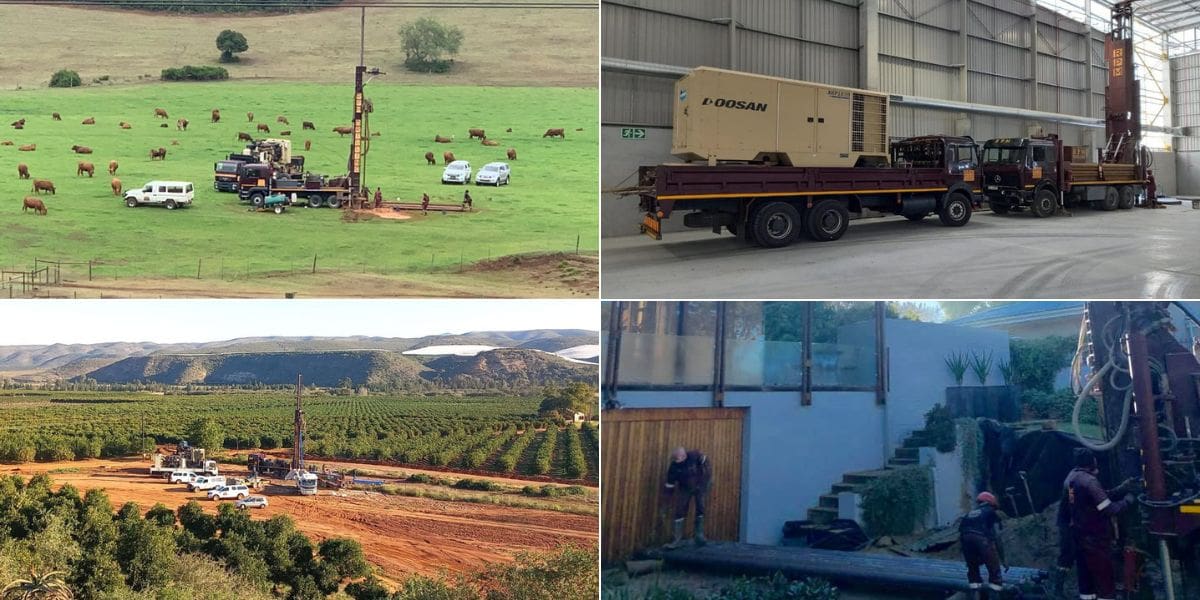
Read More: Water Borehole Benefits and Water Saving Tips.
Is borehole water safe to use?
As discussed in the point above, yes, borehole water is generally safe to use and to drink; however, it is important to have your private water supply checked regularly to ensure that it is consistent with regular drinking water standards and that you have a good understanding of the water’s contents.
Groundwater is created, recharged and replenished by rainwater that seeps into the ground and joins the natural underground water supply that your borehole has access to.
With that being said, Groundwater that comes from non-polluted locations is safe for use. In fact, 64% of South Africans live on the use of Groundwater alone.
However, if for some reason your water supply is inconsistent with the necessary drinking water standards, RPM Drilling can help you to spot this from the onset as part of our water borehole monitoring service, and provide you with the necessary analysis and treatment.
Human actions and hazardous materials from locations like dumps and septic tanks can result in Groundwater pollution, which is why it’s so important to site the borehole properly.
We can check for possible causes of pollution during the first step of the drilling process, and we can also determine the availability of Groundwater in the long run.
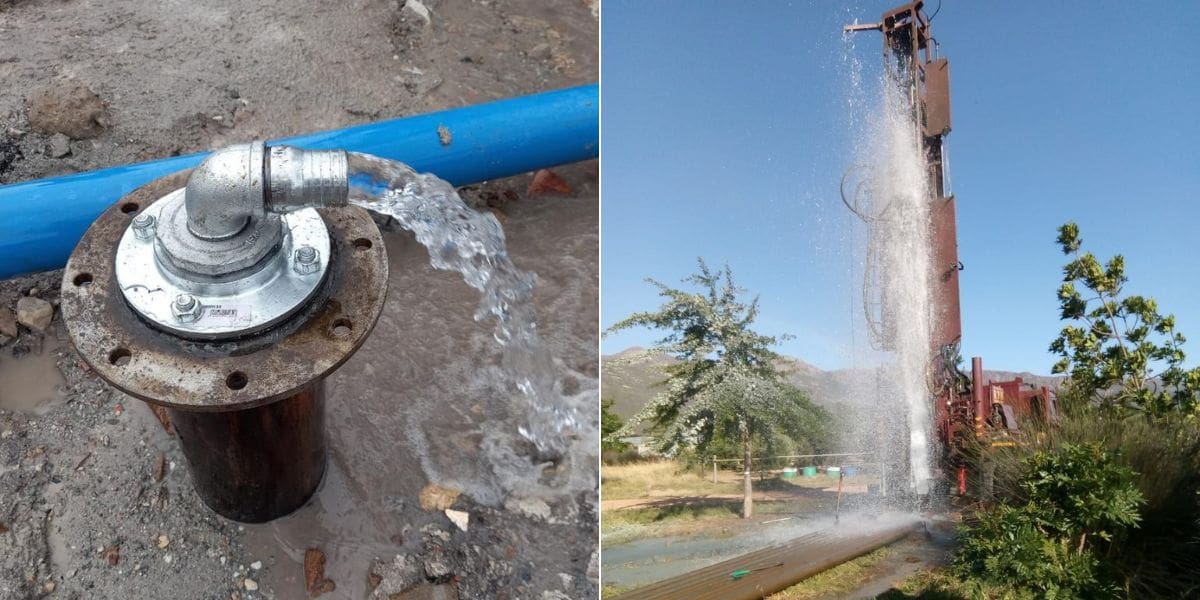
Read More: Our Services and Borehole Water Supply.
How is water boreholes maintained and treated?
Before you can use borehole water for anything and everything in your home, your private supply needs to undergo a series of tests as discussed in the point above.
Based on the results, certain borehole water purification methods may then need to be implemented.
This purification process, unfortunately, cannot be done straight from the source due to the possibility of contaminants.
That’s why the water supply needs to be tested first and only then can a borehole water purification system be installed.
RPM Drilling offers full installation and maintenance of water purification plants, allowing borehole water to be used safely in your home.
With this, we can also provide you with a detailed analysis of your water’s characteristics, as well as treatment for your borehole water such as aeration and the removal of contaminants like iron and hydrogen sulphide.
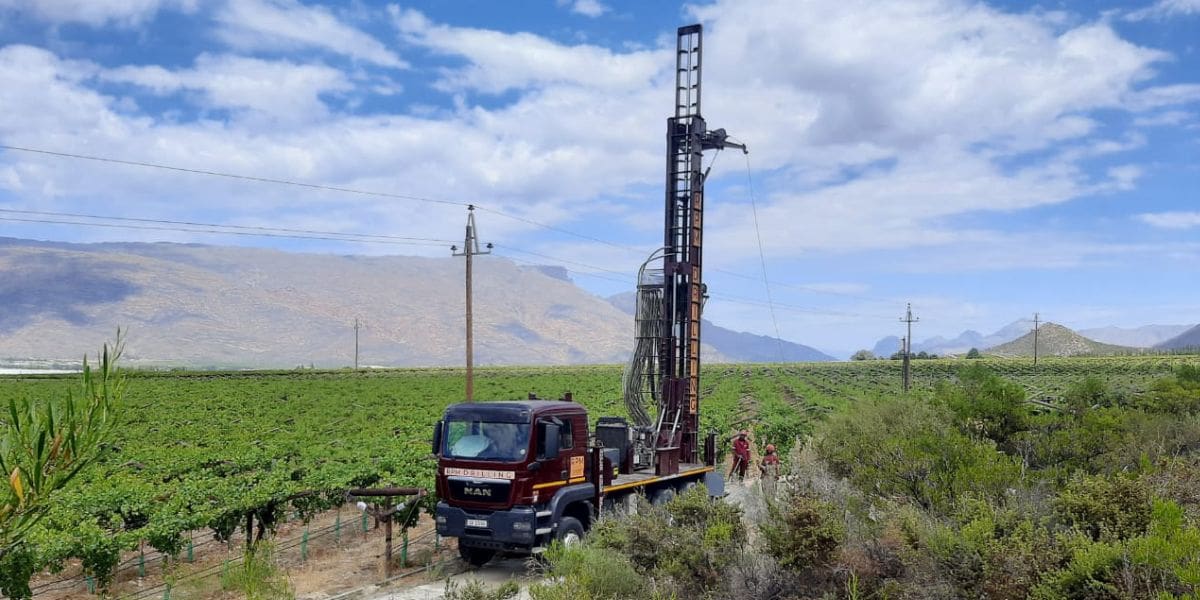
A detailed analysis of your water supply is great for both maintenance and treatment purposes because allows us to determine the most appropriate filtration system for your borehole, as well as to keep any hazardous materials clear from your private water supply.
However, even with this analysis and various purification methods, your borehole will still need to be routinely checked.
Water borehole and pump maintenance are important to follow, and we are prepared to assist in order to ensure the best return on your investment.
Read More: How to Choose the Right Water Borehole Contractor.
Why is borehole water salty, dirty or smelly?
Salty: There are a number of reasons why your water may taste this way, but the most common cause can be a high concentration of chloride ions in your water supply.
Water with a salty aftertaste is not only unpleasant to drink, but it can also damage your pipes and boilers.
If your water has a salty taste, it’s best to have your borehole water tested to pinpoint the source of the issue.
Read more – What causes groundwater salinity?
Dirty: Brown or dirty looking water can be caused by a number of factors, but without proper investigation or testing, it’s difficult to find the source of the issue.
The most common causes are surface infiltration, a collapsing borehole, or a breakdown of the metals in your piping, and while this issue is typically repairable via water treatment methods, professional analysis is always recommended.
Read more – Finding the cause of dirty or brown water in your well
Smelly: Hydrogen sulfide gas (H2S) is most commonly the cause of this issue as it can give water a “rotten egg” taste or smell.
This can occur for a number of reasons:
1) it can be naturally occurring due to chemical reactions or decay within aquifers,
2) it can be produced by “sulfur bacteria” in Groundwater,
3) it can be produced by sulfur bacteria in boilers, and
4) although rare, it can be caused by pollution.
Read more – Causes of 5 common taste and odor water issues
Regardless, your first step here is to find the source through analysis or testing in order to determine the best treatment option.
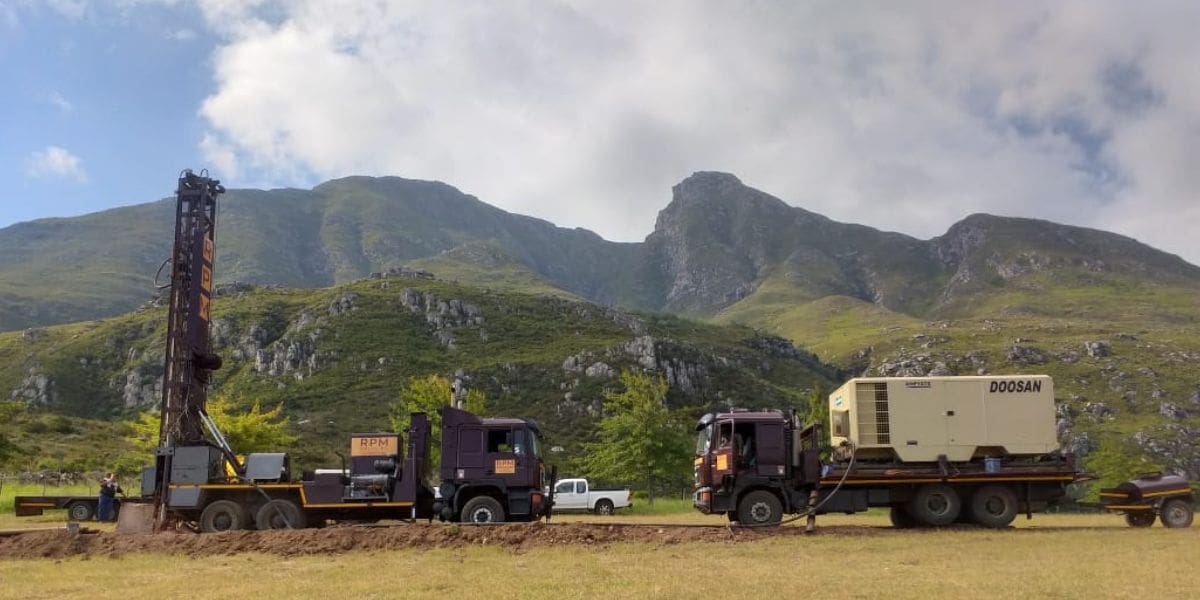
Our final thoughts
Water boreholes are a long-term investment, and if drilled and installed correctly by a company that has the necessary experience and expertise, it can serve its purpose for many years to come.
For this reason, it is important to understand what it takes to drill and maintain a water borehole.
This is the knowledge that will ultimately assist you in making sure that your borehole contractor is not only using quality equipment, materials and tools in the drilling and construction of your borehole but also ensuring that they are prepared to maintain the longevity of your investment.
At RPM Drilling, we encourage those who are interested in investing in a water borehole to first do the necessary independent research, which is why we have created this post as a guide.
It is important to acknowledge the necessities when it comes to investing in a private water supply, and to ensure that the contractor you choose is registered with the relevant authorities, is using professional equipment, and won’t drop the ball or disappear into thin air if something goes wrong.
If you have any questions, or if you are interested in a free quote, please contact us.
We look forward to helping you in any way we can.
Ready to take responsibility for your water consumption? Ready to pursue the drilling of your own water borehole? It all begins at home. It starts with you.
RPM Drilling can help!!!
Whether it’s on your residential , commercial , industrial or farming property .
Contact Us To Get A Free Quote Today!
We have depots in Western & Eastern Cape
